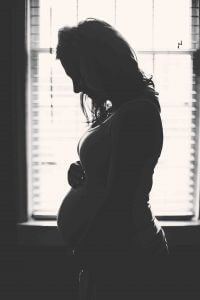
According to a NEWS4 October 2015 report, a Maryland woman settled a pregnancy discrimination lawsuit with her former employer, UPS. Her case was settled after reaching the Supreme Court. In 2006, she became pregnant. She gave UPS a doctor’s note regarding her ability to lift packages. Her doctor recommended she not lift anything heavier than 20 pounds. Her work tasks involved handling overnight letters. UPS, however, claimed that all drivers must be able to lift packages up to 70 pounds.
The company placed her on unpaid leave. She lost her health insurance because of the unpaid leave. Unemployment was not an option because UPS did not technically fire her, so she sued.
In her lawsuit, she claimed that UPS should have offered her light-duty work. In previous situations, the company allegedly gave drivers who had lost their driving privileges because of drunk driving arrests, for example, other tasks to perform. In March of 2015, the Supreme Court ruled in the woman’s favor and remanded her case back to the lower court. They reached the settlement shortly after the case went back to the lower court.
The woman did return to work a couple of months after her daughter was born, but she is no longer employed at UPS. She left the company in 2009.
What is Pregnancy Discrimination in Baltimore?
Every pregnant woman employed in a Baltimore company is supposed to be treated like every other employee with a medical condition. The Pregnancy Discrimination Act (PDA), which is an amendment to Title VII, as well as Maryland’s Pregnant Worker’s Fairness Act, forbids discrimination on the basis of pregnancy, childbirth, or related medical conditions. This means employers must find suitable tasks for a pregnant employee to do at work just as they would with another employee with a medical condition or a temporary medical issue. For example, if an employer allows employees who have suffered a heart attack to work under a light-duty restriction but denies a pregnant employee the same accommodation, then the employer may be liable for pregnancy discrimination. In short, when an employer treats a pregnant employee differently, it could be a sign of pregnancy discrimination.
How does Pregnancy Discrimination Happen in Baltimore?
“Pregnancy discrimination” is a general term to describe how an employer can treat a pregnant employee unfairly. However, it does not describe the type of discrimination that occurs to a pregnant employee.
The types of pregnancy discrimination that can happen in Baltimore include, but are not limited to, being:
-
- Fired for being pregnant
-
- Denied employment for being pregnant
-
- Denied maternity leave
-
- Docked accrued benefits for any medical conditions that occur because of pregnancy
-
- Refused medical benefits for pregnancy
-
- Denied a job promotion because of pregnancy
- Demoted from a current job because of pregnancy
Winning a Pregnancy Discrimination Case in Baltimore
The foundation of a pregnancy discrimination case is proving that discrimination actually happened. The first step is to prove that you were treated differently than other employees in the same work situation. Next, you have to prove that the difference in the treatment you received was because you are pregnant. The attorneys at The Law Firm of J.W. Stafford can help. You can contact us via our website or via telephone at 410-514-6099.
(image courtesy of Joey Thompson)
